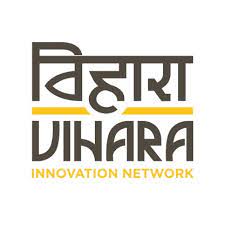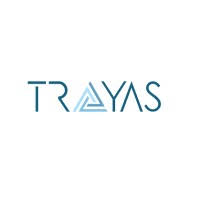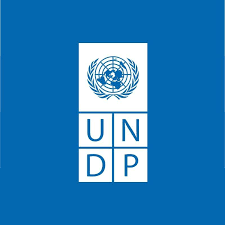
Website UNDP
Background
UNDP is committed to achieving workforce diversity in terms of gender, nationality and culture. Individuals from minority groups, indigenous groups and persons with disabilities are equally encouraged to apply. All applications will be treated with the strictest confidence.
UNDP does not tolerate sexual exploitation and abuse, any kind of harassment, including sexual harassment, and discrimination. All selected candidates will, therefore, undergo rigorous reference and background checks.
UNDP has been working in India since 1951 in almost all areas of human development. Together with the Government of India and development partners, we have worked towards eradicating poverty, reducing inequalities, strengthening local governance, enhancing community resilience, protecting the environment, supporting policy initiatives and institutional reforms, and accelerating sustainable development for all.
With projects and programmes in every state and union territory in India, UNDP works with national and subnational government, and diverse development actors to deliver people-centric results, particularly for the most vulnerable and marginalized communities. As the integrator for collective action on the Sustainable Development Goals (SDGs) within the UN system, we are committed to supporting the Government of India’s national development vision and priorities and accelerating the achievement of the SDGs for the people and the planet.
UNDP India’s current Country Programme, 2018-2022, is in its final year of implementation. Our new Country Programme (2023-2027), which comes into effect in 2023, builds on our prior work and aims to provide an integrated approach to development solutions in three strategic portfolios:
- Strong, accountable and evidence-led institutions for accelerated achievement of the SDGs
- Enhanced economic opportunities and social protection to reduce inequality, with a focus on the marginalized
- Climate-smart solutions, sustainable ecosystems and resilient development for reduced vulnerability
South-South cooperation, gender equality and social inclusion are promoted across the pillars. The programme is supported by a framework of renewed partnerships and blended finance solutions, strategic innovation and accelerator labs, and data and digital architecture.
You are invited to join a team of future-smart development professionals to support India in achieving the national and globally agreed goals. As part of the UNDP team, your focus will be to work with diverse stakeholders to find country-specific solutions that lead to sustainable development and reach those furthest behind first.
More than half of all livelihoods in India is primarily dependent on agriculture. A massive 54.6% of the total workforce is engaged in agricultural and allied sector activities and 57% of the rural households are directly dependent on agriculture for their livelihoods. However, the agricultural sector is facing various challenges like small landholding, declining productivity, rising input costs, declining farm income, the adverse impact of climate change, and decline in the percentage share of workers engaged in the agriculture sector. Agricultural production shocks have huge social and financial repercussions, impacting rural income levels, Gross Domestic Product (GDP) and poverty rates.
The Government of India’s flagship schemes Pradhan Mantri Fasal Bima Yojana (PMFBY) and KCC/MISS have become important tools to strengthen the resilience of Indian farmers. The schemes ensure maximum benefits for the farmers by providing financial risk protection against natural calamities and catastrophic events including pests, climate uncertainties and environmental shocks. Apart from providing comprehensive risk coverage for the entire crop cycle, PMFBY also enables direct claim transfer into farmers’ accounts through e-remittance. Additionally, to address agrarian distress, Kisan Credit Card/ Modified Interest Subvention Scheme (MISS) was introduced by the Government of India to provide cheap and hassle-free credit for millions of farmers and to ensure continued investment into agriculture to bring in mechanisation, modernise agriculture practices and eventually enhance productivity.
UNDP’s Country Programme Document (2023-2027) intended outcome 2 states that “By 2027, people will benefit from and contribute to sustainable and inclusive growth through higher productivity, competitiveness and diversification in economic activities that create decent work, livelihoods, and income particularly for youth and women”. UNDP leverages its expertise in systems strengthening to support the Ministry of Agriculture through setting up of Central Program Management Unit (CPMU) for the implementation of PMFBY and KCC, to improve institutional and programme responsiveness, increase coverage and better access among marginalised and excluded farm households, offering innovative measures and support mechanisms for Agri-value chain financing, risk management and reduced crop loss for the rural population in India. The PMU will also focus on providing Capacity Building and Training support to participating state-level government departments involved in PMFBY and KCC and advancing the scheme among new states for improved uptake.
Duties and Responsibilities
Direct Reporting To: National Programme Director (NPSA 11) Overall Reporting To2: Head – Inclusive Growth (NOC)
Reportees to this position (if applicable):
a. Non-Life Actuary Analyst (NPSA 9)
Non-Life Actuarial Coordinator (NPSA 8)
Data Analytics and Strategic Insights Analyst (NPSA 9)
Data Analysis & MIS Analyst (NPSA 8)
Data Analyst Insurance & Banking (NPSA 8)
MIS Support Assistant (NPSA 3) (2 positions)
As the Non-Life Actuary Specialist- Technical Support Unit will work under the overall guidance and supervision of the National Programme Director-TSU. S/He will ensure engagement of all direct stakeholders and delivery of project objectives, in coordination with the Joint Secretary & CEO, DoA&FW, MoA&FW when needed.
Duties and Responsibilities:
- Working closely on the Crop Insurance Web Portal and Data Management Scheme to maintain a National Crop Insurance underwriting and Claims Database for PMFBY and WBCIS programs.
- Annual review of crop insurance results and underlying claims costs and comparison with the OGP (commercial) premium rates charged by individual insurance companies.
- Perform risk-based modelling to determine premium rates.
- Training for the State Governments and TSUs on actuarial and rating methods and interpretation of the results.
- Work closely with National Programme Director – TSU and Crop Insurance & R&D Lead on product design to incorporate features that are compatible with the existing underwriting guidelines.
- Provide technical backstopping for inputs for training activities on actuarial and rating methods.
- Provide timely inputs for the timely submission of all progress reports as may be required by UNDP, the Ministry of Agriculture.
- Foster partnerships with key national and state government departments, private insurance companies, international reinsurers supporting PMFBY, farmers organisations and relevant technical institutions working on agriculture insurance and related issues.
- Perform any other tasks consistent with the level of the post and/ or assigned by the National Programme Director – Technical Support Unit.
Competencies
Core
Achieve Results: LEVEL 3: Set and align challenging, achievable objectives for multiple projects, have lasting impact
Think Innovatively: LEVEL 3: Proactively mitigate potential risks, develop new ideas to solve complex problems
Learn Continuously: LEVEL 3: Create and act on opportunities to expand horizons, diversify experiences
Adapt with Agility: LEVEL 3: Proactively initiate and champion change, manage multiple competing demands
Act with Determination: LEVEL 3: Think beyond immediate task/barriers and take action to achieve greater results
Engage and Partner: LEVEL 3: Political savvy, navigate complex landscape, champion inter-agency collaboration
Enable Diversity and Inclusion: LEVEL 3: Appreciate benefits of diverse workforce and champion inclusivity
People Management
UNDP People Management Competencies can be found in the dedicated site.
Cross-Functional & Technical competencies
Digital & Innovation
Data analysis: Ability to extract, analyse and visualize data (including Real-Time Data) to form meaningful insights and aid effective decision making
Digital & Innovation
Data Collection: Being skilled in Data Sorting, Data Cleaning, Survey Administration, Presentation and Reporting including collection of Real-Time Data (e.g. mobile data, satellite data, sensor data).
Data Strategy and management: Knowledge to draft or execute a data strategy or a data management framework
Blockchain advice: Knowledge of how blockchain works, and ability to advise on the opportunities and challenges for governments and society
Digital inclusion: Knowledge of how digital inclusion works, opportunities and challenges for governments and society
Policy regulation for digital and emerging technology: Ability to design or advise on regulations and policy for digital and emerging technology. Ongoing research into emerging technologies and digital trends and the applications, risks, and opportunities associated with digital adoption, combined with the ability to communicate this synthesis with a broad audience.
Finance
Financial risk: Ensures financial resilience through proactive assessment of risk, implementation of controls and taking mitigating action. Understands risk and reward in relation to collaborative and commercial projects. Ensures a culture of positive risk management.
Financial reporting and analysis: Understands changes in regulatory, legal and ethical frameworks and standards for financial reporting in the public sector. Ability to extract, evaluate financial data, derive relevant findings and present them in a meaningful and coherent manner to facilitate effective decision making and performance monitoring. Understands the benefits of integrated reporting, including non-financial resources such as human, social and intellectual capital, and environmental and governance performance
Required Skills and Experience
Education:
- Bachelor’s Degree OR Master’s Degree in Actuarial Science or Statistics, Econometrics or equivalent.
Experience:
- Minimum 7 years’ (Bachelor’ Degree) or 5 years (Master’ Degree) of demonstrable experience in the design and rating of crop insurance programmes in India,
- Relevant Experience at the national level working with Governments and private entities in the insurance sector.
- Additional years of demonstrable experience in the design and rating of crop insurance programmes in India,
- Experience of working with Central and/or State Governments/ national/ international/ public private organisations / on similar assignments will be preferred,
- Prior technical advisory services in the insurance sector.
- Demonstrates integrity and ethical standards,
- Promotes the vision, mission, and strategic organization
- In-depth knowledge of Agriculture Insurance, product design, indemnity-based insurance, index-based insurance products national policies and existing schemes, regulatory laws related to crop insurance, related concepts, policies and practices,
- He or she must possess strong quantitative and actuarial skills (reserving, pricing) and good knowledge of insurance and reinsurance products and finance enterprise.
- Broad based knowledge across cross cutting thematic areas such risk management, CCE, financial legal and regulatory standards, procurement procedures, environmental and social safeguards,
- Should have sound knowledge of legislative, legal and regulation structure in place with respect to crop insurance in India,
- Demonstrates substantive and technical knowledge to meet responsibilities and requirements of the post with excellence.
- Ability to carry out research and communicate strategic pieces that guide decisions on strategic programme directions,
- Tailors and presents information to diverse audiences using a variety of communication delivery methods (e.g., written, electronic, oral, interpersonal) Documentation,
- Good interpersonal skills and ability to establish and maintain effective partnerships and working relations with people in a multi- cultural, multi-ethnic environment with sensitivity and respect for diversity.
- Demonstrated skills in working with multi-disciplinary teams,
- Ability to lead consultative meetings and provide training at national and state level with partners and senior stakeholders to identify priorities and manage the timely delivery of project activities,
- Reliable in delivering own parts of the work as part of a team effort
- Demonstrates excellent work/project planning skills,
- Is open to change and ability to manage complex, ever-changing environments.
Required Language(s)
- Excellent oral and writing skills in English and Hindi
Note: This position is open for India nationals only
To apply for this job please visit estm.fa.em2.oraclecloud.com.





